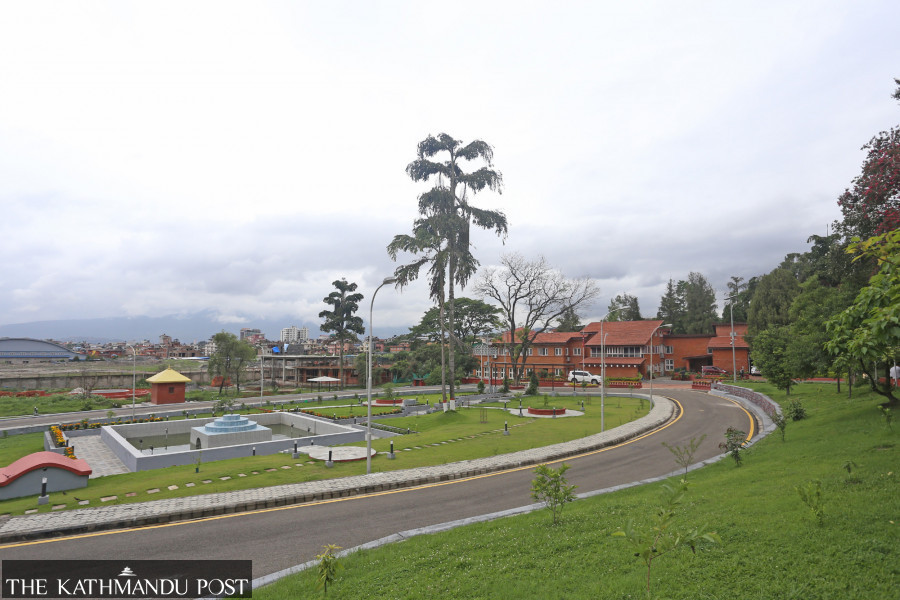Editorial
Spare no one
People suspect that while ‘small fry’ fall into legal net, ‘big fish’ in Lalita Niwas scam will get away.
The unfolding Lalita Niwas land grab case is perhaps the best illustration of the kind of collusion between Nepali bureaucrats, businessmen and top politicians the country has become notorious for of late. First, bureaucrats in the land revenue office in Kathmandu, amply aided and abetted by their political masters, transfer nearly seven hectares of state’s land in the names of dozens of individuals. Then, when their wrongdoing came to light, top political leaders used their clout to suppress investigation—as happened a year and half ago when the District Attorney’s Office, Kathmandu impeded the probe when it inexplicably returned a detailed investigation report on the scam to the Central Investigation Bureau (CIB) of Nepal Police. Now, the CIB has made seven new arrests based on fresh investigation around the forgery of documents that were required to authenticate the illegal transfer of land. Among the seven arrested were ex-election commissioner Sudhir Shah and owner of Bhatbhateni supermarket chain Min Bahadur Gurung. Earlier, on February 5, 2020, the Commission for the Investigation of Abuse of Authority (CIAA), the constitutional anti-graft body, had filed corruption cases against 175 individuals in relation to the scam, including former deputy prime minister Bijay Kumar Gachhadar, two former ministers for land reforms and three government secretaries.
Two notable omissions from the list of those pursued by the CIAA were a pair of former prime ministers: Madhav Kumar Nepal and Baburam Bhattarai. It was during their tenures that many of the land transfers were made. The Supreme Court had later asked the CIAA to clarify why it had spared Nepal and Bhattarai. Therein also lies the crux of the matter. If the comments on social media and popular press are anything to go by, the most recent CIB arrests have near unanimous public support. Yet many of the same supporters of the bold government action are also sceptical that while “small fry” continue to fall into the legal net, one after another, “big fish” will again get away. It’s a valid scepticism. Even those who were earlier arrested in relation to the same scam were later released on bail and now continue to walk free. Except for a handful of bureaucrats, no top political leader has had to do jail-time.
If the Dahal government is committed to getting to the root of the scam, it should give the CIB full freedom to complete its investigation and make necessary arrests. But that is not enough. In the past, government organs like the attorney’s offices have been used to shield the culprits. People are closely watching if the current government has the fortitude to resist political pressure and see the investigation all the way through. But what we are looking for is fair application of law, not a witch-hunt. If Prime Minister Dahal and his government play this right, their public standing will be greatly enhanced. On the other hand, their credibility could be crushed if the new CIB activism turns out to be no more than a cheap publicity stunt to mete out selective justice.




 9.89°C Kathmandu
9.89°C Kathmandu














